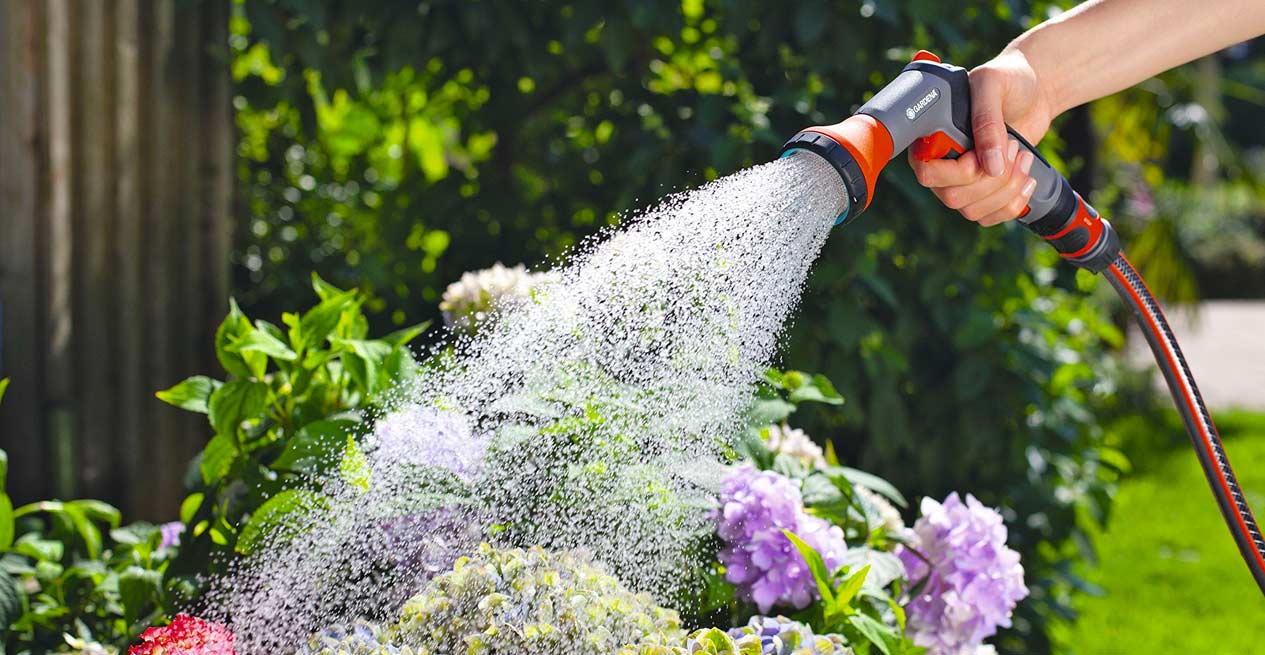November 16, 2022
10 golden rules for watering
Water is crucial to help garden plants thrive, especially in summer. However, poor watering can be detrimental to their growth. So our gardening experts urge you to always follow these ten "golden rules" when watering your garden.
1. Maintain a good level of soil moisture
Most plants depend on regular moisture. However, plants are lazy. If you water them too regularly, they may develop shallow roots and will not seek moisture deep in the soil. It is therefore advisable to deprive some plants of water before the next watering, especially at the beginning of the crop, in order to encourage deep rooting.
2. Water less frequently, but deeply.
Watering quickly, even if repeated regularly, does not really help the plants... because the water does not penetrate deeply enough. It is therefore recommended to water only once or twice a week, but deeply. How do you know if you're on the right track? Dig a small hole in the soil and see if it is evenly moist to at least 15 cm deep. If it is not, you will need to water again.
3. Water late at night or early in the morning
On hot days, it is imperative to water in the early morning or late evening. If you water your garden during the day, much of the water will evaporate due to the heat and you will need to water much more often. Help your plants get enough water before the next day's heat.
4. Keep leaves dry
Wet leaves get sick. Be aware that pests can develop on foliage, so avoid proliferation by not keeping leaves wet overnight. In addition, wet leaves that are left in the sun will develop light burn marks (the concentrated radiation effect of the water droplets).
5. Make sure the water reaches the roots
When you water in a hurry, you often only cover the top part of the soil... and the water does not reach the roots in sufficient quantity. To avoid this, water at the base of each plant instead of watering indiscriminately with a general sprinkling. It is at the foot of the plant that the water is directly useful to nourish the roots. Your best friend will be the watering can.
6. Apply gradually to avoid runoff
Water needs time to soak into the soil. Does micro-irrigation sound familiar? It consists in bringing water at low pressure as close as possible to the foot of the plants instead of watering all the surrounding soil unnecessarily and abundantly... The water infiltrates slowly: there is no evaporation, nor runoff. You can opt for either the microdrip system or a microporous hose.
7. Targeted but distributed watering
Avoid watering only one area at all costs, as this will result in one-sided root and plant growth. This growth will result in less efficient water absorption, and you can guess what happens next. The solution is to water your plants over a wider area around them until the soil is well soaked.
8. Use water-efficient irrigation methods
To save water, you should do what is called "smart watering". Water as much as necessary and as little as possible. Also, favor hoeing and mulching, which can save up to 50% of water. This will slow down water evaporation and keep the soil moist. Finally, you can opt for an automatic irrigation system with a humidity sensor.
9. Avoid overwatering
Too much of anything is bad, and this also applies to watering. Too much water drives oxygen out of the soil and prevents the roots from getting enough oxygen, and they eventually die. Root asphyxiation is not the only negative consequence of overwatering, but this excessive moisture creates an ideal environment for fungi to grow and develop. These fungi will eventually spread through the plant's roots and lead to its certain death.
10. Use quality, clay-rich soil
Soil is essential in the garden, it is the support of all life, but it is sometimes neglected. If you want to save water, opt for a quality soil rich in clay. With better expansion properties, this type of soil holds nutrients well and retains water in greater quantities and more evenly.








